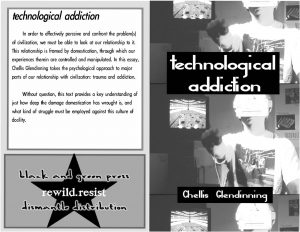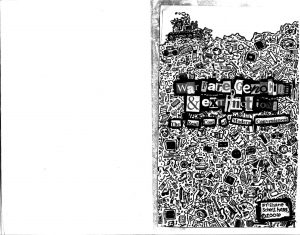
Text from back cover:
“In order to effectively perceive and confront the problem(s) of civilization we must be able to look at our relationship to it. This relationship is framed by domestication, through which our experiences therein are controlled and manipulated. In this essay, Chellis Glendinning tokes the psychological approach to major parts of our relationship with civilization, trauma and addiction.
Without question, this text provides a key understanding of just how deep the damage domestication has wrought is, and what kind of struggle must be employed against this culture of docility.”


